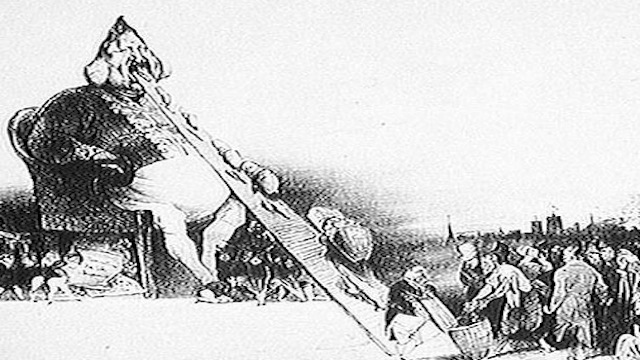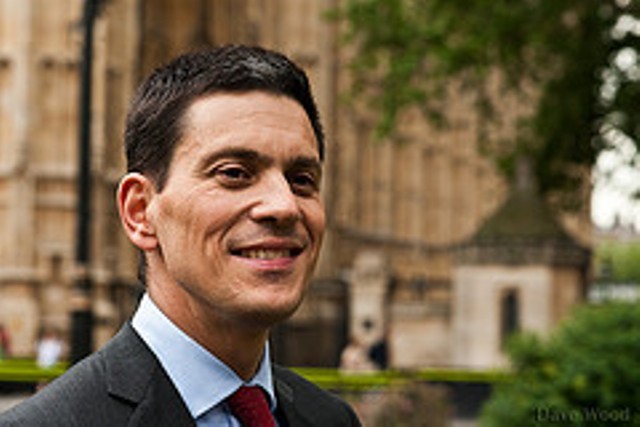Does the ability to exercise self-control determine your class? Research suggests that children with higher socioeconomic status demonstrate more self-control.
All Articles
“Don’t covet your grief like a precious thing, something that justifies your every whim.” In the controversy over Cordoba House, The Economist sees a petulant America just trying to get its way.
Children’s author Roald Dahl was a socialite, fighter pilot, and spy for the British government after World War II. A new biography details the unassuming author’s foreign conquests.
A new meta-analysis shows a large majority of subjects for psychology experiments have been U.S. undergraduates, a population from which one should be wary of making generalized conclusions.
“Telekinesis. Harnessing the mind to control your surroundings. It is the stuff of fantasy. Now, that fantasy is crystallizing into reality.” The L.A. Times on consumer products that read your mind.
Experts commonly accept the Hudson River School, led by Thomas Cole, as the first true American art school and movement. They looked at the American landscape and saw something the […]
“Reports of my demise have been greatly exaggerated”, Mark Twain famously responded after reading his obituary in the New York Journal. To which may now be added “Reports of the […]
“That the Great Recession could bring hope for a major recalibration—a resetting of all the clocks—is not surprising. Unfortunately, though, it’s not happening in any meaningful way.”
“Society has clearly benefited from the invention of caffeine, so why shouldn’t we also put a touch of amphetamine in the water?” The Frontal Cortex ponders human enhancement.
As Moscow is afflicted by heat waves and smoke from neighboring forest fires, Russians are sometimes at a loss. The countries cultural wisdom turns on surviving the cold (with vodka), not the heat.
Crops with genetic modifications are cross-pollinating in unintended ways across North Dakota. The pesticide, herbicide and drought resistant strains are proving difficult to control.
“Utah may offer a better model than Arizona for dealing with illegal immigrants.” In the wake of a federal challenge to Arizona’s newest immigration law, Utah is looking for middle ground.
“The loudest and most important lesson of the Soviet experience should always be: don’t ever do this again. Children, don’t try this at home.” A new book chronicles the failed experiment.
“Government is certainly growing in the U.S., but that hardly makes us a social democracy.” William Galston of the Brookings Institution distinguishes between social insurance and social democracy.
“Odd as it may seem, the first generation that cannot imagine life without the Internet doesn’t actually consider the medium particularly important, and indeed shuns some of the latest web technologies.”
“One of the main developments in recent American literature has got to be a newly self-conscious traditionalism.” A report on this decade’s fiction finds a rebirth of classical values.
“The FCC has halted discussions amid reports spread that Google and Verizon will propose their own, less regulatory framework for Net neutrality.” The L.A. Times says the FCC must act now.
Yesterday the Senate passed the Healthy, Hunger-Free Kids Act by unanimous consent. The bill allots $4.5 billion to fund public school food programs. The bill, which was backed by Sen. […]
A little Friday afternoon fun from Media Matters… A profile of Dr. Kevin Pezzi, a contributor to Andrew Breitbart’s website Big Government. Update: Shrinkage has occurred at Big Government. Is […]
Providing adequate and sustainable sources of energy isn’t a geophysical problem of finding supplies or a technological challenge of using sun, wind or gas more efficiently. It’s a psychological problem: […]
Since this is Big Think’s ‘Month of Thinking Dangerously’, here are my three pennies worth. In politics it has almost been impossible to think dangerously on either side of the Atlantic […]
I think Elena Kagan will be an outstanding Justice, not just because of her outstanding (and underrated) technical abilities—as I’ll mention shortly, I think the Court as a group is […]
Emily Yoffe, aka Slate advice columnist Dear Prudence, has evidently been driven to distraction by the prospect of an Islamic cultural center/mosque two blocks from the former World Trade Center. […]
Our Sun has been asleep for a while, but now it’s starting to wake up. You’ve probably read or heard about the recent solar storms that sent plasma towards Earth, […]
“When life is being led in public, every word and gesture is open to criticism.” A new book explains how social media recall the dating games of Jane Austin’s provincial England.
Harvard psychologist Gene Heyman says what while people may have predispositions to addiction, evidence shows people consciously choose to break their addictive habits (or not).
MIT scientists have found string theory useful in explaining the behavior of superconductors; applying that theory to other phenomena could move physics in a positive direction.
David Mamet’s new book ‘Theatre’ confirms the playwright’s exeunt from ‘brain-dead liberalism’, a move to the right which he originally announced in the Village Voice.
“We assume that more rational analysis leads to better choices but, in many instances, that assumption is exactly backwards.” Being too analytic confuses our value judgments, say new research.
“Offering a cash prize to encourage innovation is all the rage. Sometimes it works rather well.” The Economist says patrons are offering big prizes like the Ansari X to motivate inventors.








